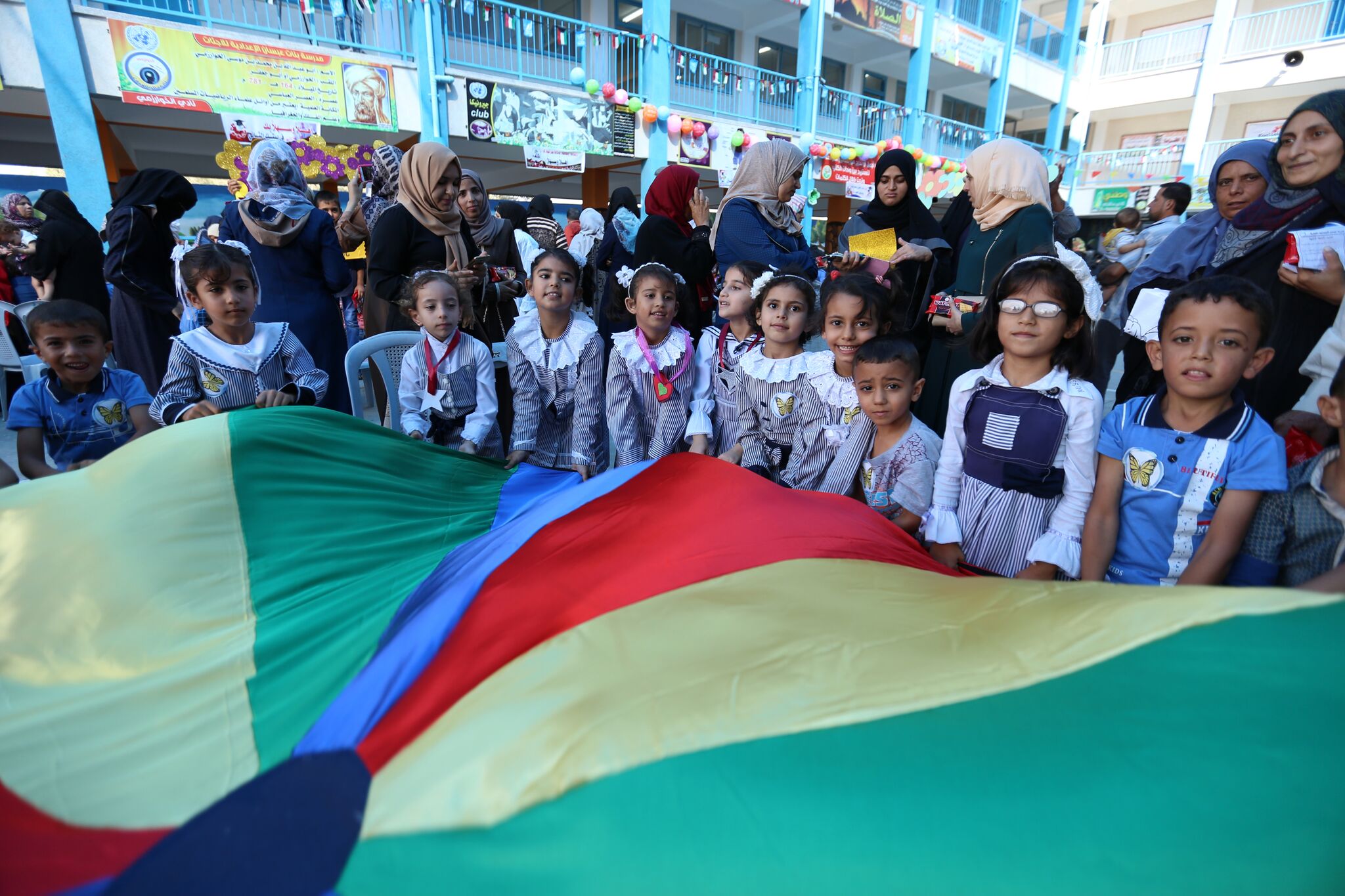
picture this: gaza through a child’s eyes
In the Gaza Strip, a 10 year old child has not experienced more than 12 hours of electricity in a single day in his or her lifetime. Access to healthy, drinkable water out of a tap or the ability to travel in and out of Gaza is a distant or non-existent memory.
That same 10 year old has lived through and survived three devastating and brutal Israeli military assaults that have resulted in thousands of lives lost. The possibility of the next attack is always looming and imminent, causing children to live in constant fear.
In Gaza, what is ‘normal’ for a child to experience is warped, and with it, the child’s ability to cope, live a meaningful and full life, and hope for the future.
given this, imagine the mental health needs of palestine refugee kids.
A painting by a Palestine refugee student created during an UNRWA art therapy session
OVERVIEW OF MENTAL HEALTH IN the GAZA strip
Years of blockade, brutal violence, and now COVID-19 make it extremely difficult to cope with daily life or hope for a better future. These numbers paint a bleak picture of what it’s like growing up in the Gaza Strip as a Palestine refugee:
13 years of crippling Israeli and Egyptian land, sea, and air blockade
Over 50% unemployment rate and few job opportunities
80% of people in Gaza dependent on humanitarian assistance
55% of Palestine refugee children showing poor psychological well-being
70% of refugee children in Gaza identified as potentially depressed
Among children, the stress of these issues has produced: post-traumatic stress disorder (PTSD), anxiety, depression, intense fear, bed-wetting, poor concentration, eating disorders, sleeping disorders, irritability, and attention deficit hyperactivity disorder (ADHD).
It is expected that these high levels of stress and distress will continue, as individual and family coping strategies are further eroded by chronic stressors and poor living conditions.
Basic psychosocial and mental health support is not only critical in supporting the most vulnerable children and adults, but remains essential in developing and implementing community-based interventions that can strengthen families.
Children represent over half the population of the Gaza Strip, and tragically, they are the main victims of the rapidly deteriorating humanitarian conditions, only knowing Gaza under complete blockade, deepening poverty, and isolation.
Having faced multiple Israeli military assaults, gender-based violence, and now witnessing their friends, family members, and loved ones being injured and/or killed during the Great March of Return, these children face unimaginable distress and lack of perspective for a better future.
The blockade on Gaza isn’t just physical. It doesn’t just affect the economic and social situation in Gaza. It’s a blockade on the mind.
-Dr. Ghada al Jadba, UNRWA ‘s Director of Health in the Gaza Strip
q: how does unrwa’s funding crisis impacts its mental health services?
answer:
UNRWA health centers and schools provide psychosocial counseling services; however, this program is one that has been severely reduced due to the ongoing funding crisis. In the past, UNRWA counselors made home visits, created individualized plans for each child in need, and made sure the entire family was receiving psychosocial support. After the US administration defunding UNRWA in August 2018, the Agency was forced to downgrade its counselors, who each serve over 1,000 students, from full-time (40 hours a week) to part-time (20 hours a week), leaving them with less than one minute per student each week. Thanks, in part to UNRWA USA supporters and Gaza 5K participants, as of July 2019, the mental health workers returned to full time status, but ongoing funding still remains vital to maintain their salaries.
q: what can I do? + what is the gaza 5k is funding?
answer:
By participating in and fundraising for UNRWA USA’s Gaza 5K walk/run in person or virtually, you help provide funding for UNRWA’s mental health services for Palestine refugee kids and support UNRWA counselor salaries.
Counselors play a critical role in supporting young Palestine refugee students as well as teachers and other education staff. Counselors provide a combination of individual counseling, group counseling, structured psychosocial activities, as well as life skills. Meet some of the counselors you support through the Gaza 5K.
Beyond counseling, kids are taught lessons oriented to improving self-awareness, stress management, peer relations, self-esteem, coping, and problem-solving.
With the Gaza 5K funds, together we aim to not only fill the gaps left by chronic underfunding but also strengthen UNRWA’s services to Palestine refugees in Gaza and ensure everyone has access to a counselor or some form of psychosocial support.




